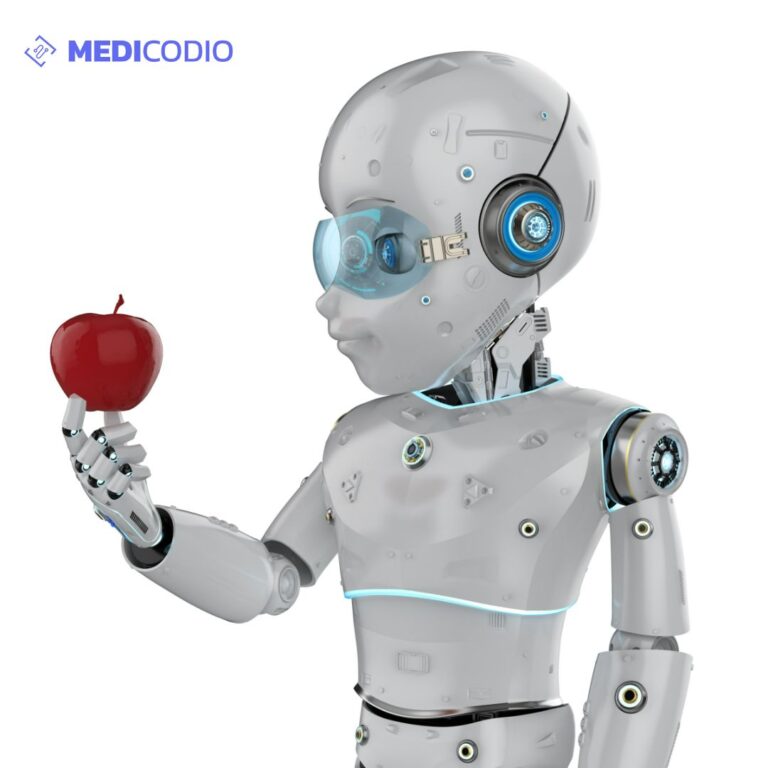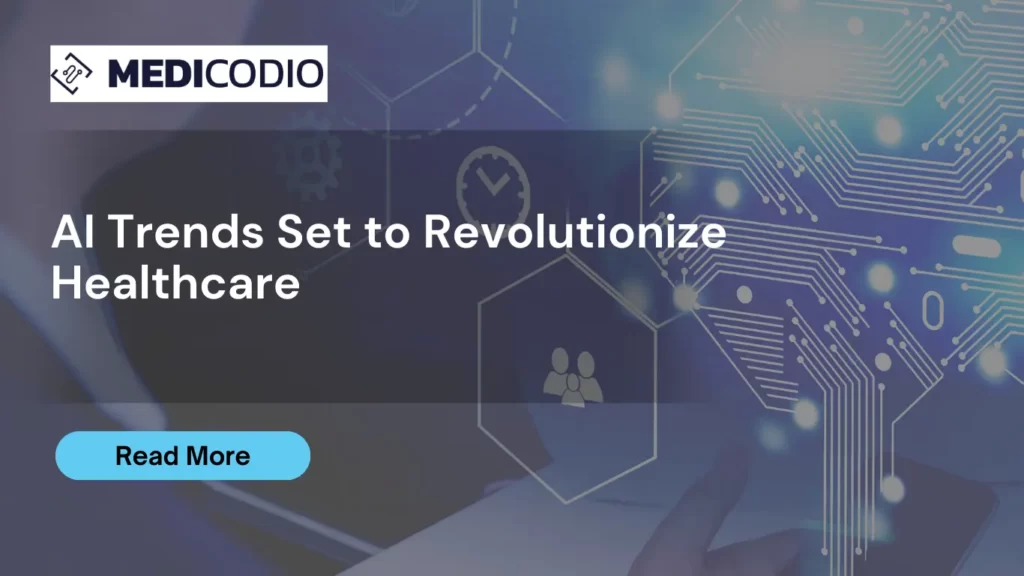We’ve all heard of the old adage ‘an apple a day keeps the doctor away’. But a doctor cannot be wished away all the time, everyone will need medical assistance at one point or the other. This inevitability makes healthcare one of the most important sectors in any economy. As countries around the world such as those in Europe, Japan and even the US brace themselves for aging populations in the decades to come, efficient and economical healthcare becomes an unavoidable priority for them.
In this context, any trend set to make healthcare more accessible and affordable is watched with keen interest by analysts and industry leaders. The advent of AI/ML (Artificial Intelligence and Machine Learning) into healthcare has ushered in several trends that augur well for the sector.

Some of the trends include:
- Use of ML for analysis of large data sets – ML algorithms can, at lightning speed, analyze large amounts of data, such as medical images and electronic health records, identify and learn from patterns in such data and use the analysis to make predictions. This can help doctors make more accurate diagnoses and treatment plans. Companies are investing millions of dollars to harvest insights from decades of longitudinal data of patients that have been hitherto lying unused in university health centers and large hospitals.
- Natural Language Processing (NLP) – NLP technology can analyze unstructured data, such as patient notes and medical literature, to extract valuable information. This can help doctors and researchers stay up-to-date with the latest medical knowledge and improve patient care. Other areas where unstructured data is being converted to machine-friendly formats includes pathology slides and imaging such as X-rays, CT and MRI scans. Insights from this newly accessible type of information is leading to exciting new results and discoveries.
- Robotics in surgery – Robotics technology can assist surgeons in performing complex procedures and improve the precision and accuracy of surgeries. Surgical robots bring an unparalleled precision and control the trajectory and depth of surgeons’ movements, making them well-suited for procedures that require the same, repetitive motions. Where is the AI in this, one may ask. AI is being used to observe surgeons at work and identify patterns that help surgical robots work with significant accuracy, often up to sub-millimeters. Laparoscopic video analysis of procedures helps identify any missed steps and prevent errors in surgery. Surgical robotics is a win-win for surgeon-AI collaboration.
- Artificial and Virtual Reality (AR/VR) – VR technology can be used for medical training and therapy, allowing doctors and patients to practice procedures and simulations. This allows hospitals and teaching centers to train surgeons and fellows more economically and with more precision. VR technology has also been used to create simulations to treat patients with dementia, paranoia and motor skills deficiencies. Powerful AI-driven analysis tools accompany such tech, customizing feedback and honing the tools.
- Blockchain – Blockchain technology can be used to securely store and share patient data, helping to improve data privacy and security. Such data can be accessed via technology such as multi-agent reinforcement learning (MARL) that automates repetitive tasks. The use of such tech also frees up humans to perform higher order work. AI-assisted blockchain-based frameworks for smart and secure medical record management are being tested in several centers around the world.
- Predictive analytics – Predictive analytics can help healthcare providers identify patients at risk of certain diseases and conditions, allowing for early intervention and prevention. This is a booming field, built upon ML models scouring petabytes of longitudinal data to identify patterns and perform analytics to discover underlying causes. This branch of medicine can also help medical practitioners guide their patients in making lifestyle decisions that can improve their quality of life.
- Medical coding – Medical coding is an industry ‘inside job’ that is prevalent across many developed countries. Matching doctors’ prescriptions, diagnoses and medical orders to precise medical codes that aid in billing and insurance claims is a multi-million dollar industry. ML models have entered the fray in this sector, assisting medical coders match codes against orders more accurately, thereby saving healthcare providers time and money.
As the healthcare industry enters an era of precision medicine aided by advances in gene therapy and medical technology, AI/ML is supporting quantum leaps in drug discovery, disease prevention, therapeutics and care.





